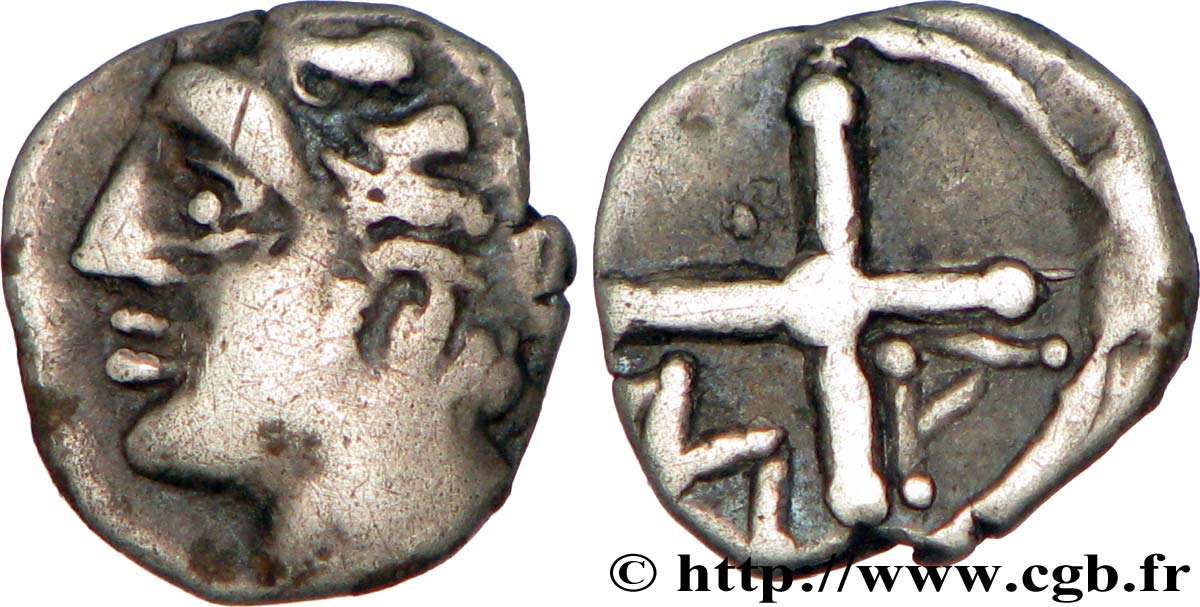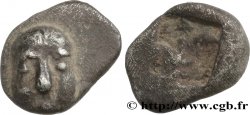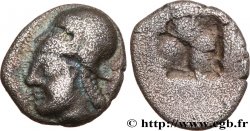bga_309646 - MASSALIA - MARSEILLES Obole MA, tête à gauche - croix bouletée au revers
150.00 €
Количество
Добавить в корзину

Тип Obole MA, tête à gauche - croix bouletée au revers
Дата: c. 220-150
Монетный двор / Город: Marseille (13)
Металл: silver
Диаметр: 8,50 mm
Ориентация осей монеты: 3 h.
Вес: 0,54 g.
Редкость: R2
Комментарии о состоянии
Flan un peu court, avec un portrait presque complet et un très beau revers. Patine sombre et brillante
Ссылки в каталоге: :
Лицевая сторона
Аверс: легенда: ANÉPIGRAPHE.
Аверс: описание: Tête juvénile à gauche du dieu fleuve (le Lacydon ?), cornu, les cheveux ondulés tirés en arrière, avec favoris.
Обратная сторона
Реверс: легенда: M-A DANS LES 3E ET 4E CANTONS, LETTRES BOULETÉES.
Реверс: Описание: Roue à quatre rayons sans moyeu central.
Комментарий
Cette monnaie présente un revers très particulier ; la roue est plutôt constituée d’une croix bouletée entourée d’un listel.
Le premier exemplaire que nous ayons vu est le n° 1474 de MONNAIES 38 (= bga_209386).
Le récent ouvrage “Corpus des monnaies de Marseille et Provence, Languedoc oriental et Vallée du Rhône” ne reprends malheureusement pas cette variante pourtant si caractéristique, si ce n’est le n° 373 ou 361 qui sont d’une toute autre variante.
Le premier exemplaire que nous ayons vu est le n° 1474 de MONNAIES 38 (= bga_209386).
Le récent ouvrage “Corpus des monnaies de Marseille et Provence, Languedoc oriental et Vallée du Rhône” ne reprends malheureusement pas cette variante pourtant si caractéristique, si ce n’est le n° 373 ou 361 qui sont d’une toute autre variante.








 Cообщить об ошибке
Cообщить об ошибке Распечатать страницу
Распечатать страницу Отправить мой выбор
Отправить мой выбор Задать вопрос
Задать вопрос Consign / sell
Consign / sell
 Информация
Информация









